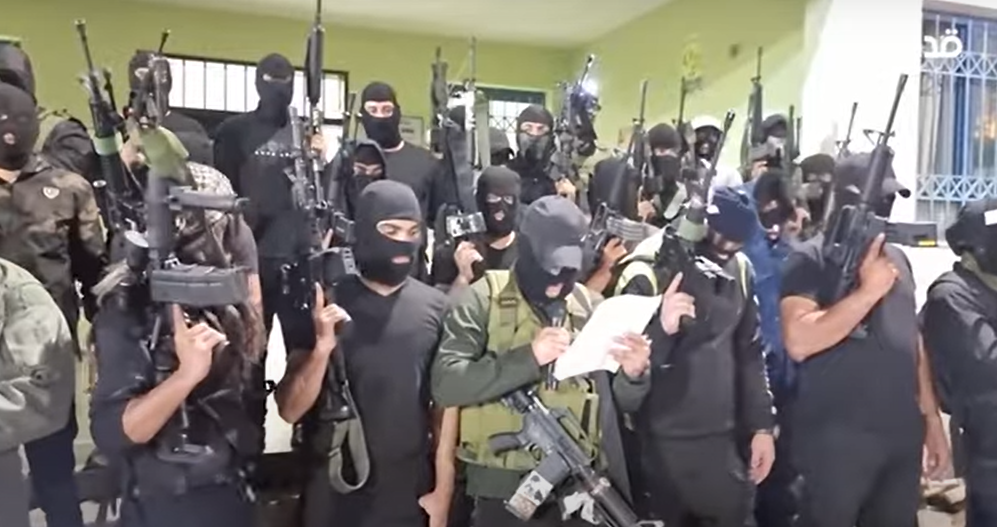Meanwhile, Prime Minister Netanyahu is committed to fulfilling his promise to the American administration by strengthening the PA in Judea and Samaria, according to senior political sources in Jerusalem.
In this context, the Defense Cabinet has recently granted authority to the Prime Minister and the Minister of Defense to approve a series of concessions for the PA, despite opposition from Ministers Itamar Ben Gvir and Bezalel Smotrich.
Immediately following the cabinet meeting, Shin Bet chief Ronen Bar and Hussein al-Sheikh, Secretary-General of the PLO’s executive committee, held discussions to further bolster the PA’s capacity and counter terrorism, especially in northern Samaria.
However, the IDF remains cautious about entrusting the PA with complete responsibility for combating terrorism.
The IDF has resumed its activities in the Jenin area after a month-long hiatus subsequent to a significant operation in the Jenin refugee camp and a visit by PA Chairman Mahmoud Abbas to the city.
Within the Jenin refugee camp, approximately 150 entrenched terrorists persist, with the principal force being the “Jenin Battalion” of the Islamic Jihad.
Security sources confirm that armed terrorist groups have successfully reconstructed the entire terrorist infrastructure previously dismantled by the IDF during their operation in the refugee camp.
Recently, the “Jenin Battalion” dispatched a terrorist to conduct an attack in Tel Aviv; however, the attacker was neutralized by Tel Aviv municipality inspectors.
Additionally, the battalion attempted to launch an attack with a squad of three terrorists in Israel, but they were intercepted and killed by IDF forces at the entrance to Jenin.
According to Palestinian sources, Shin Bet’s Ronen Bar conveyed to Hussein al-Sheikh that Israel must proactively thwart terrorist activities.
Bar expressed disappointment with the PA’s security performance in Jenin.
The PA has stationed around 600 security personnel in Jenin, primarily targeting terrorists wanted by the PA.
These efforts include apprehending individuals responsible for burning the PA police station in Jabba village and executing shooting attacks against the Moukataa building in Jenin.
Regrettably, they avoid apprehending terrorists involved in attacks against Israelis or entering the Jenin refugee camp to disarm the “Jenin Battalion.”
Al-Sheikh accuses Israel of weakening the PA by allowing IDF operations in Area A and failing to curb settler actions.
In the coming weeks, the joint security committee of Israel and the PA is scheduled to convene in Sharm Al-Sheikh, with participation from senior representatives from the US, Egypt, and Jordan.
The PA will present its progress in countering terrorism.
The Biden administration is exerting considerable pressure on the PA to take action against terrorism in Jenin, marking the initial step toward regaining security control over all of northern Samaria.
According to sources within Jenin, the PA has devised a security plan incorporating the following components:
- Deploying security personnel at the entrances and exits of Jenin city and its refugee camp.
- Establishing a central operations room for high-ranking officials in the PA’s security forces.
- Offering incentives to armed groups in Jenin in exchange for disarmament, including integration into the PA’s security apparatus, provision of monthly salaries and vehicles, and amnesty from the Israeli Shin Bet for past terrorist activities.
This approach mirrors the “wanted terrorists deal” between Israel and the PA in 2007, designed to strengthen PA Chairman Mahmoud Abbas, elected two years prior.
- Augmenting security personnel and armored vehicles in the Jenin area.
A similar plan was proposed to address terrorism in Nablus several months ago; however, it faltered due to the outright rejection of the “Lions’ Den” terrorist group.
While PA Chairman Mahmoud Abbas vocally advocates “one authority, one weapon,” he remains hesitant to confront armed groups directly in northern Samaria, fearing it could destabilize his rule. Instead, he seeks dialogue to persuade these groups to voluntarily disarm.
Both Abbas and his inner circle are deeply unpopular among Palestinians, particularly in northern Samaria. They are perceived as corrupt and aligned with Israeli interests. The likelihood of armed groups engaging in meaningful dialogue leading to the cessation of terrorism is exceedingly slim.
Consequently, the onus once again falls on Israel’s security forces to combat terrorism and prevent the PA from collapsing.




